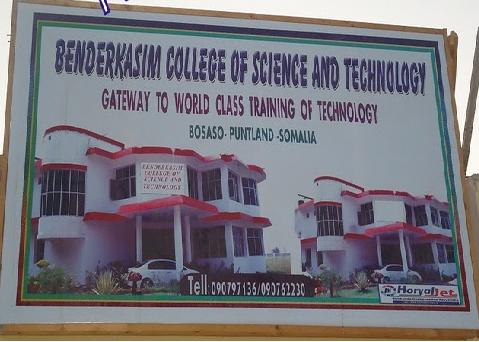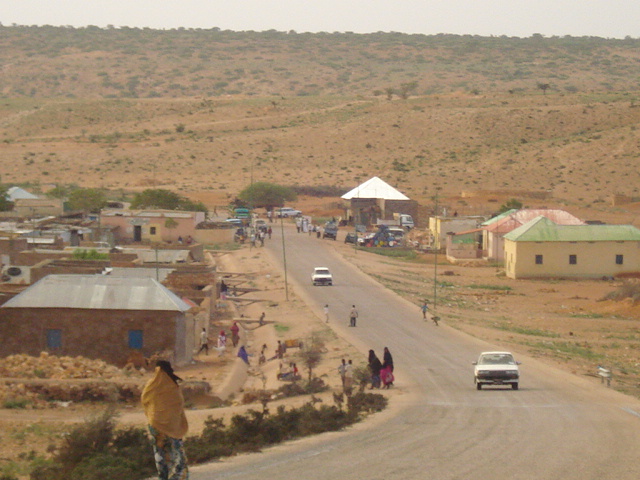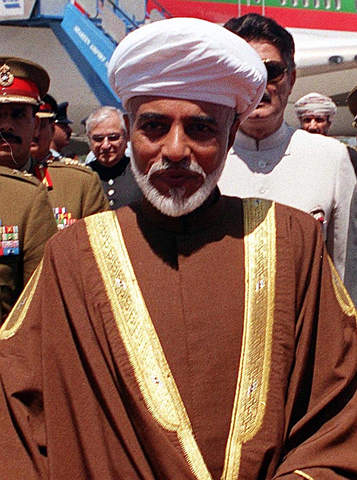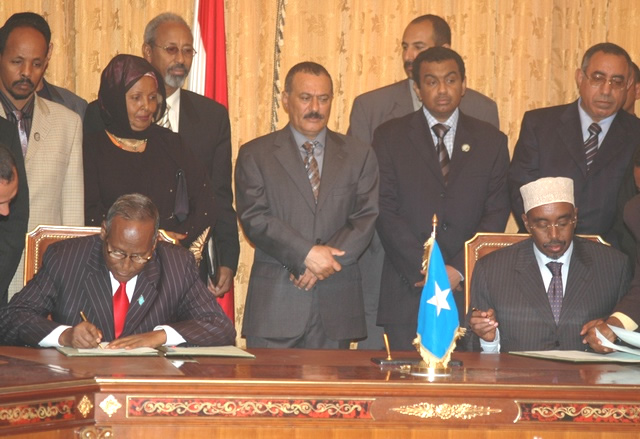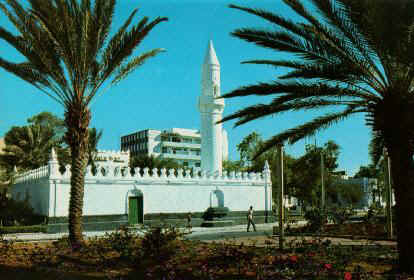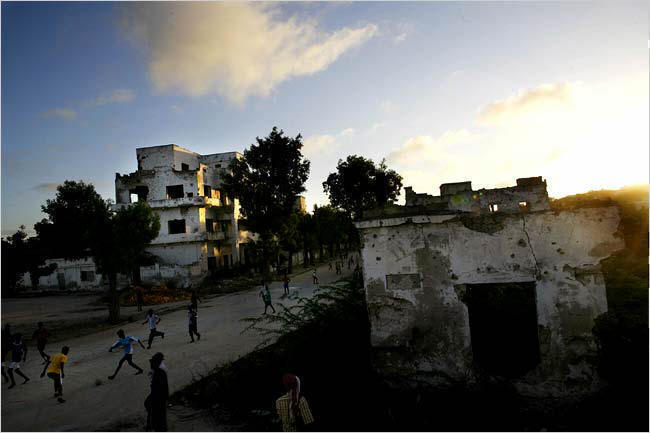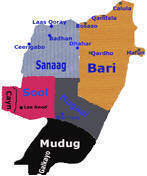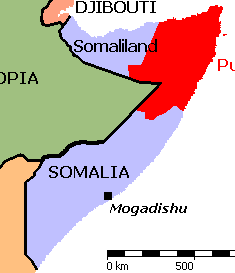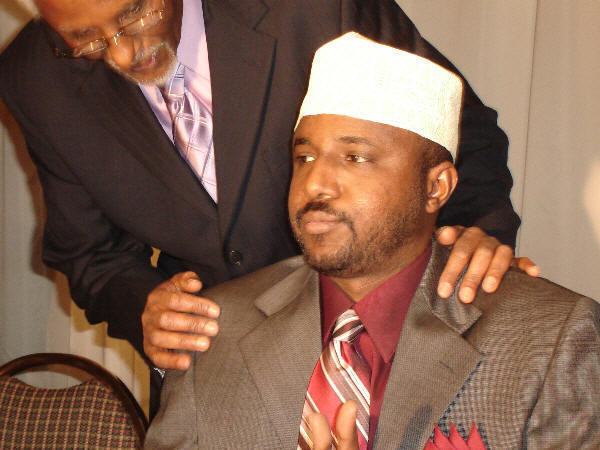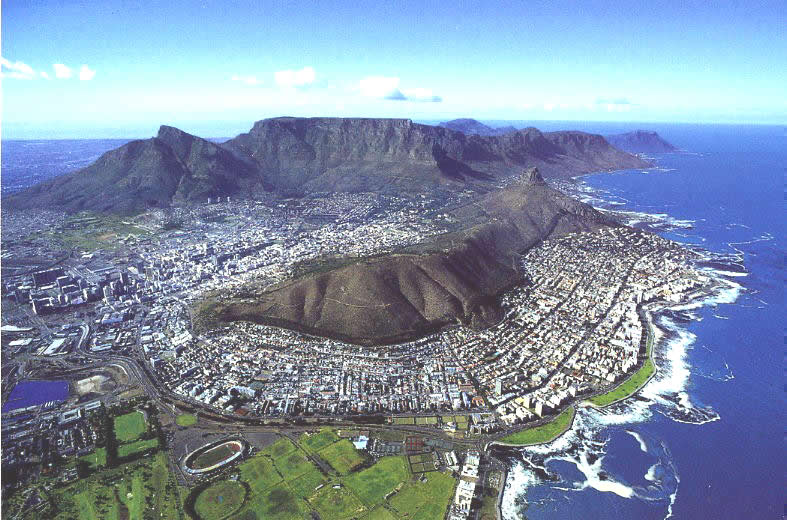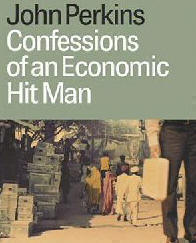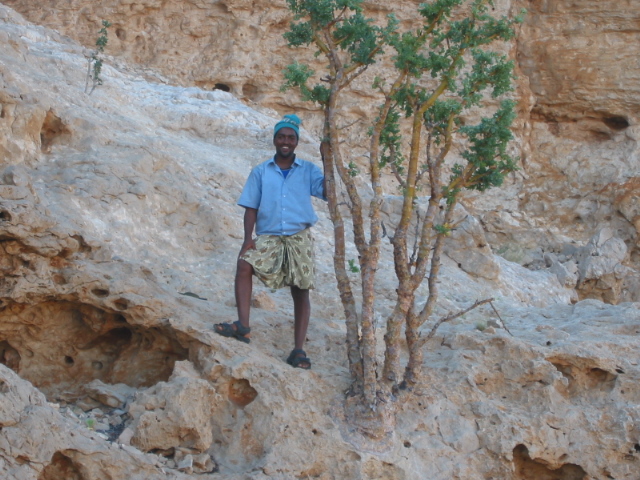
The Birth of Two Decades of Mayhem
Part II
January 28, 2011
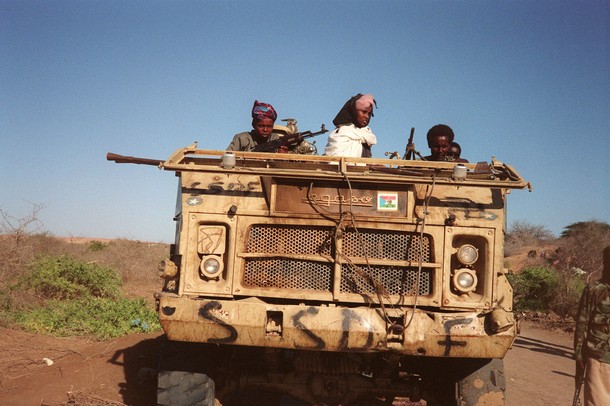
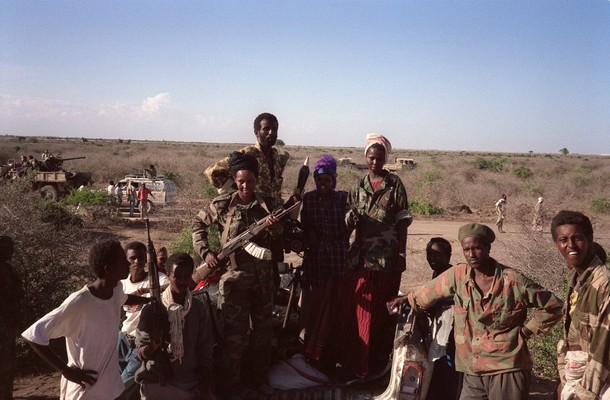
Somali Salvation democratic Front (SSDF) fighters, armed, move in their military vehicle, 24 March 1991 in Bufo, 85 kilometers of Mogadiscio. President Siad Barre fled the country in late January 1991. His departure left
For the �Looma Ooyaan� residents of
Introduction: Since the collapse of the Siyaad Barre regime in 1991
The history of the emergence of these clan-based political and armed factions illustrates that factions mobilized their clansmen by utilizing clanism and what Roobdoon Forum refers as Islamic Liberation Theology.
Without a doubt, warlords had legitimacy issue in mind, when addressing to the public. In their speeches, the practice of referring to themselves as good-doers and their opponents as evil-doers was the norm. They trumpeted of themselves as saviours of Somali unity, nationalists, as well as religious men who realized the necessity to end Siyaad Barre`s dictatorial regime and thus willing to establish a new all-inclusive broad-based government.
Warlords preached moral codes that concerns all walks of life � from prohibition of Haram food and drinks to the preservation of unity and stability. At the same time, militias loyal to these warlords caused mayhem � haphazardly raping, pillaging, and murdering innocent civilians. When asked about their actions, these warlords put the blame on external factors, throwing the causes of their actions to the defunct Siyaad Barre regime.
As opposed to the 1990s wars, the current wars in
For the �Looma Ooyaan� residents of
Zooming into the 1990s interviews and statements, given by the spokespersons and leaders of Somali factions, enables us to prove that clan-animosity account of the Somali civil war has not been given the scholarly attention that its magnitude warrants, even after sixteen years of clan-warfare. This clan-animosity feeling can in fact be derived from faction joint communiqu� and statements; and therefore, posting selections of these public relation statements should be a matter of concern to all Somalis � particularly, to those who are in the field of Somali Studies.
After all, clan factionalism disguised in English acronyms (formed from three or four initial letters which include the sacrosanct letter �S�) are now facts of life for Somalis. The words and deeds of the turbulent faction followers have ordained to presuppose that faction spokespersons assumed a monumental role in fuelling clan-hatred. As a result of that, the Forum rushes in to investigate and share with you excerpts of faction communiqu�s, hoping to find solutions to the current tragic political situation in
SSDF Rebel leader on Collaboration with USC
January 09, 1991, 1615 GMT
[From the �Focus on
Somalia`s President Siyaad Barre has again issued a statement broadcast on Somali radio calling for peace in the civil war that has been raging in the capital,
[Mireh] Well, we are telling our forces inside the country, especially in the capital, to fight on the side of the USC, and I am told by the last people who came from the last airlift that they have done so.
[White] How many people do you have with weapons in
[Mireh] It is very hard to tell, really. Physically, I myself have not been there, but to be fair, you know, several hundred are already there and, they are expecting reinforcements any time.
[White] But these people, are they operating on their own or have they thrown their weight alongside the United Somali Congress?
[Mireh] Well, they have their own command, but they are really cooperating with the United Somali Congress because we see that we should cooperate and not only cooperate, fight side by side, but (?also) unite as soon as possible to save our country, really.
[White] Are you yourself in touch with the political leaders of the USC?
[Mireh] Yes, I am in touch with those in
[White] Now, some people might say that your movement, which has been going through pretty rough times of late, is just trying to cash in on somebody else`s successes.
[Mireh] Well, whatever people might say, before we had our own plans and we will continue to have, until the success. And it was a fundamental policy of SSDF to cooperate, to unite with any Somali movement. It is in the Constitution of the organization, so it is not a new policy [word indistinct].
[White] What do you think is going to happen in
[Mireh] Well, I believe that if the opposition-not only SSDF and USC, but the other forces-come and unite, I think the victory will, you` know, be assured. But if we are scattered, you know, and there are few groups here, few there, I do not expect really a major success, at least immediately.
[White] From your latest information from
[Mireh] Well, I believe quite a lot, really. It is not all in the government`s hands, but they do have really very important parts of the capital in hand still.
[White] So, there is still a lot of fighting still to be done?
[Mireh] A lot of fighting to be done, very truly.
[White] Would you be prep? With the
[Mireh] You know, we do not consider the regime as a government to be negotiated with because there is no trust. I have several times told you: Nobody trusts Siyaad Barre and his regime to sit down and talk with them. But at the moment, our emphasis is on the opposition themselves to sit together and decide on something, real unity, because basically, you know, it is unacceptable that four or five different organizations with independent armies with no centralized leadership � it is even worse than Siyaad Barre and his group. It will be chaos for the country; I mean, our people and our country will be destroyed totally. [end recording]
Aydid has not been part of USC structure
January 28, 1991, 1830 GMT
[From the �Focus on
Well the USC [United Somali Congress] rebels say they are preparing to set up an interim government composed of representatives from the various rebel groups in
[(Roble)] I do not accept that proposition simply because after 21 years it is really futile to go on fighting, and after all, there is nothing to fight against. The end that we were all struggling for has come; Siyaad Barre is gone and we can begin a new page and everybody can take part. So why? I simply do not see any point in it.
[White] Presumably, some movements want a bigger slice of the pie than others � for instance the SNM [Somali National Movement] which has been fighting longest in the north battle. They might, perhaps, want the biggest slice of the pie.
[(Roble)] I do not think you can divide a pie based on who fought the most. That is not an equitable way of dividing something. We have to find a better way of dividing or sharing rather than dividing.
[White] Perhaps the USC has the most to give away to other parties in that it controls the capital, and will you be prepared to surrender power to other people?
[(Roble)] We will share the running of the country with other groups and other Somalis who are not part of groups in an equitable way. Nobody should expect more than their fair share and nobody should get less than their fair share.
[White] You claim that the rebel movements will not start fighting each other, but there are signs already that; your movement is split within itself between the people who have been fighting in Mogadishu and a group, led by General Aydid, that has come from outside Mogadishu and is claiming part of the [words indistinct] himself, I think. Now just what is the position?
[(Roble)] Gen. Aydid has not been part of the structure of the USC in the sense of the word. He never really attended the conferences of the USC which were held in
[White] So you say he has got nothing to do with your, organization at all?
[(Roble)] Theoretically, yes.
[White] But he seems to have arrived in
[(Roble)] But he is a free man; he can come to
[White] Are you saying he does not have a following?
[(Roble)] I am sure he has got some following, but that does not concern the USC.
[White] That sounds like a bit of a headache for you.
[(Roble)] Not a headache. If other people make it headache, it is up to them.
[White] But you have one leader, can you name one leader of your organization?
[(Roble)] Yes, now (Hussein Bood) is the USC leader.
[White] Who is he? What is his background?
[(Roble)] (Hussein) is one of the most experienced Somali politicians. He was a director general in the government before Siyaad Barre took power and he had (?been) director general in the Ministry of Posts and Telecommunications. He was later director general at the Ministry of Planning.
[White] So he is a civilian?
[(Roble)] He is civilian, he is economist, and now he is a businessman for the last few years.
[White] But he has been in
[(Roble)] That is right.
[White] And who is the military leader?
[(Roble)] The military leader that was chosen by the USC officers when the fighting started in Mogadsishu four weeks ago is General (Mohamoud Nur Galal), who is one of the most experienced Somali officers and who has been working with the USC for a long time, underground with us, under the nose of Siyaad Barre without him ever knowing it.
[White] What about Siyaad Barre? Do you think he finally has gone or do you think he might make a last stance somewhere?
[(Roble)] There is no question of him making a last stance. When something really eventually catches up with somebody, there is no way they can get out of it. I think we would have prepared to capture him so that he should have gone through the due process of law. It is really sad that he got away with 21 years of criminality.
[White] What about his supporters and people from his clan? Will you exact vengeance against them?
[(Roble)] Yesterday, when we heard that Siyaad Barre fled from
[White] So you will not be hunting down his supporters?
[(Roble)] No, I am sure those who have committed crimes, if this can be proved beyond any reasonable doubt in front of a court of law, then of course we will have. [sentence as heard] That is part of the law and order.
[White] It is all very well to tell your supporters: Do not take vengeance, but there are feelings that [words indistinct].
[(Roble)] They will not because this is part of our political program.
January 29, 1991
Ali Mahdi Mohamed, 52, a hotel owner who was instrumental in organizing opposition to ousted President Mohamed Siad Barre, took the oath of office in an unadorned waiting room of Mogadishu`s police headquarters.
With his right hand on the Koran, the Muslim holy book, he swore �in the name of God Almighty to work without fear or favor in the interests of the Somali people.�
�Allahu Akbar!� or God is great, shouted the roomful of supporters at the close of the hastily organized ceremony conducted amid the sound of gunfire in this capital city, shattered by fierce month-long fighting between rebels and loyalist troops.
Outside, the streets of
A few hours later, Radio Mogadishu announced that Mahdi had appointed the prime minister of the ousted regime, Umar Arteh Ghalib, as his own interim premier with the task of forming a new government of this Horn of Africa nation.
Arteh Ghalib was named prime minister by Siad Barre earlier this month in the latest of a long string of Cabinet shakeups the past year. He is a member of the Issac clan of northern
The United Somali Congress had earlier dismissed him as a front man for Siad Barre, although he had once been imprisoned in the ousted president`s jails.
Mahdi vowed that Arteh Ghalib would select his ministers from members of all opposition groups, armed and unarmed, in a government representative of all of Somalia`s myriad clans.
Mahdi promised fair, democratic elections �as soon as possible,� but declined to establish a timetable for voting.
�Since the Somali people have suffered so long under Siad Barre,� he said, �the United Somali Congress will promise the people democracy, liberty, prosperity.�
Mahdi, dressed in cream-colored slacks, a short-sleeved white shirt open at the neck and sandals, took the oath three days after Siad Barre fled the capital in a convoy of military vehicles�.
He is a Hawiye, a member of the large central
Mahdi was a school teacher, a local UNICEF director and a parliamentarian before Siad Barre seized power in a bloodless coup in 1969. Siad Barre immediately had him imprisoned until the mid-1970s �for being a member of the former government.�
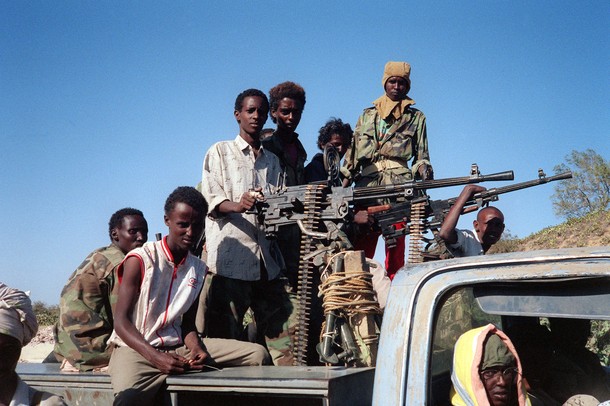
Somali Salvation democratic Front (SSDF) fighters, armed, move in their military vehicle, 24 March 1991 in Bufo, 85 kilometers of Mogadiscio. President Siad Barre fled the country in late January 1991. His departure left
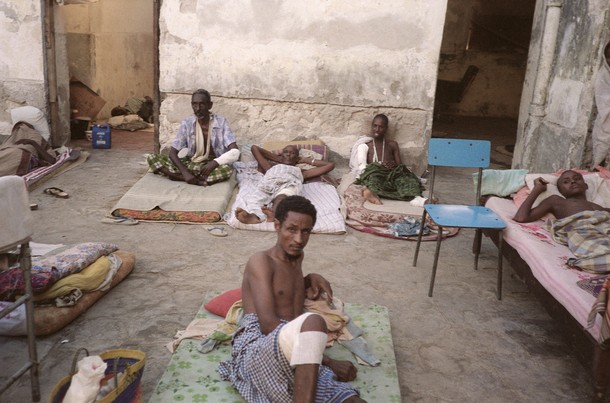
Wounded fighters of the Somali Patriotic Movement (SPM) and Somali Salvation democratic Front (SSDF) fighters, wait for medical care, 23 March 1991, in Kismayu hospital courtyard in
|
|
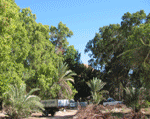 Sawirro Somaliya 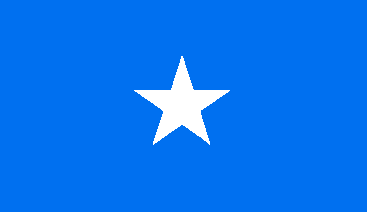 |
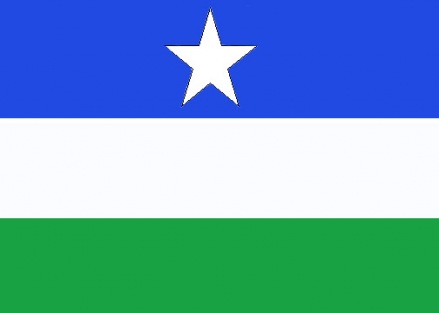
|
GOVERNANCE
The Scourge and Hope of Somalia A New Book By Ismail Ali Ismail 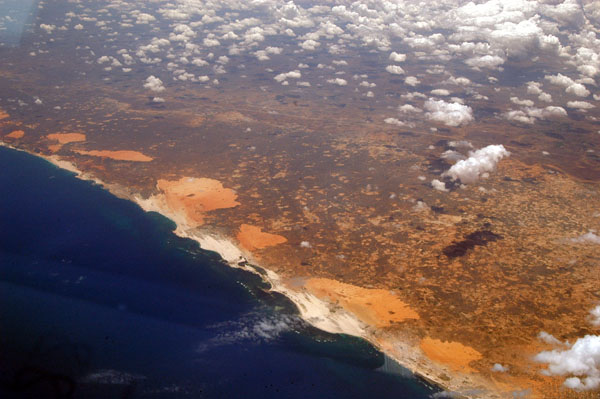 Which Way to the Sea, Please? By Nuraddin Farah Dhulkii Burcad-Badeedda .jpg) Budhcad Badeed Weli Qiil ma Leeyahay? 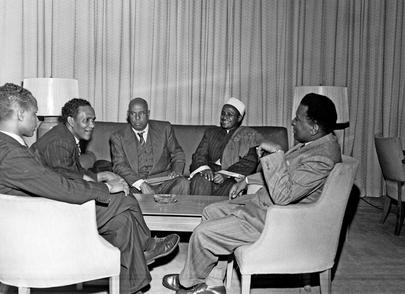 SYL LETTERS By A S Faamo |
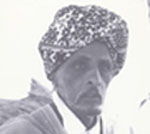 |
 |
© Copyright BiyoKulule Online All rights reserved�
Contact us [email protected] or [email protected] |

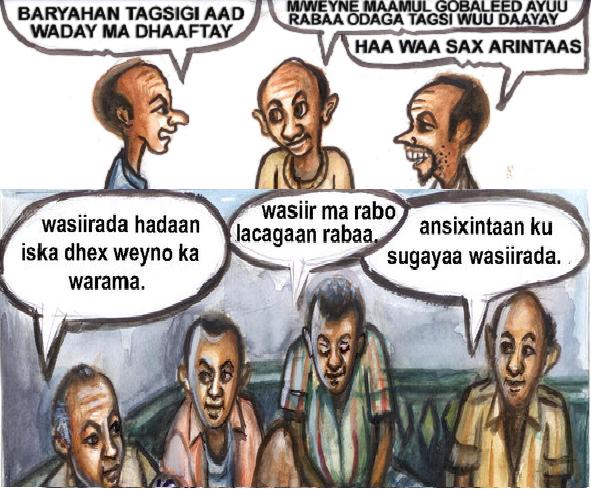
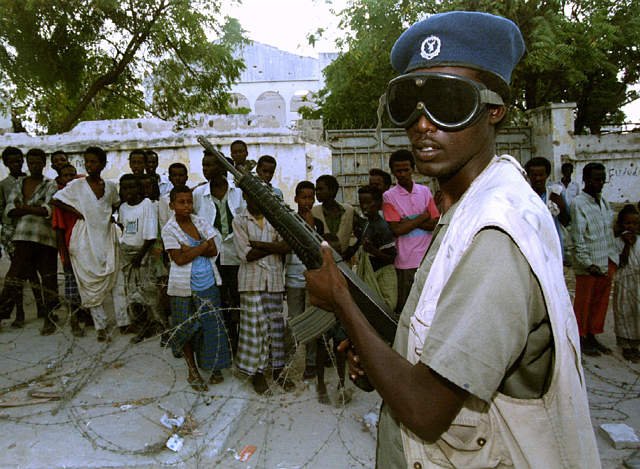


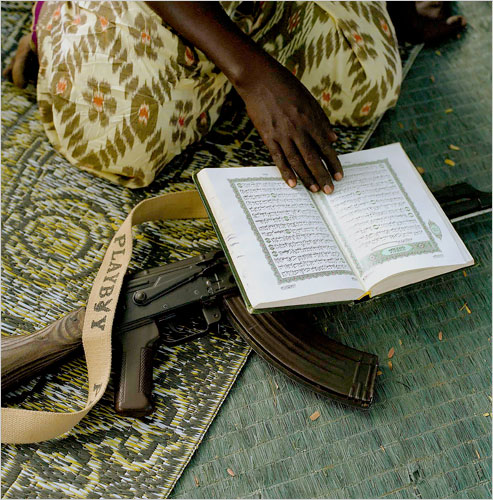

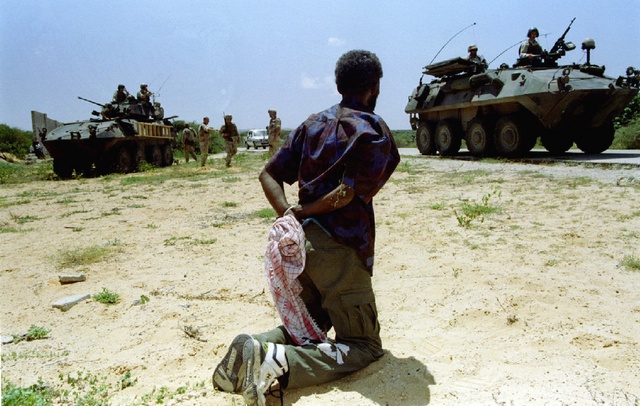
.jpg)


